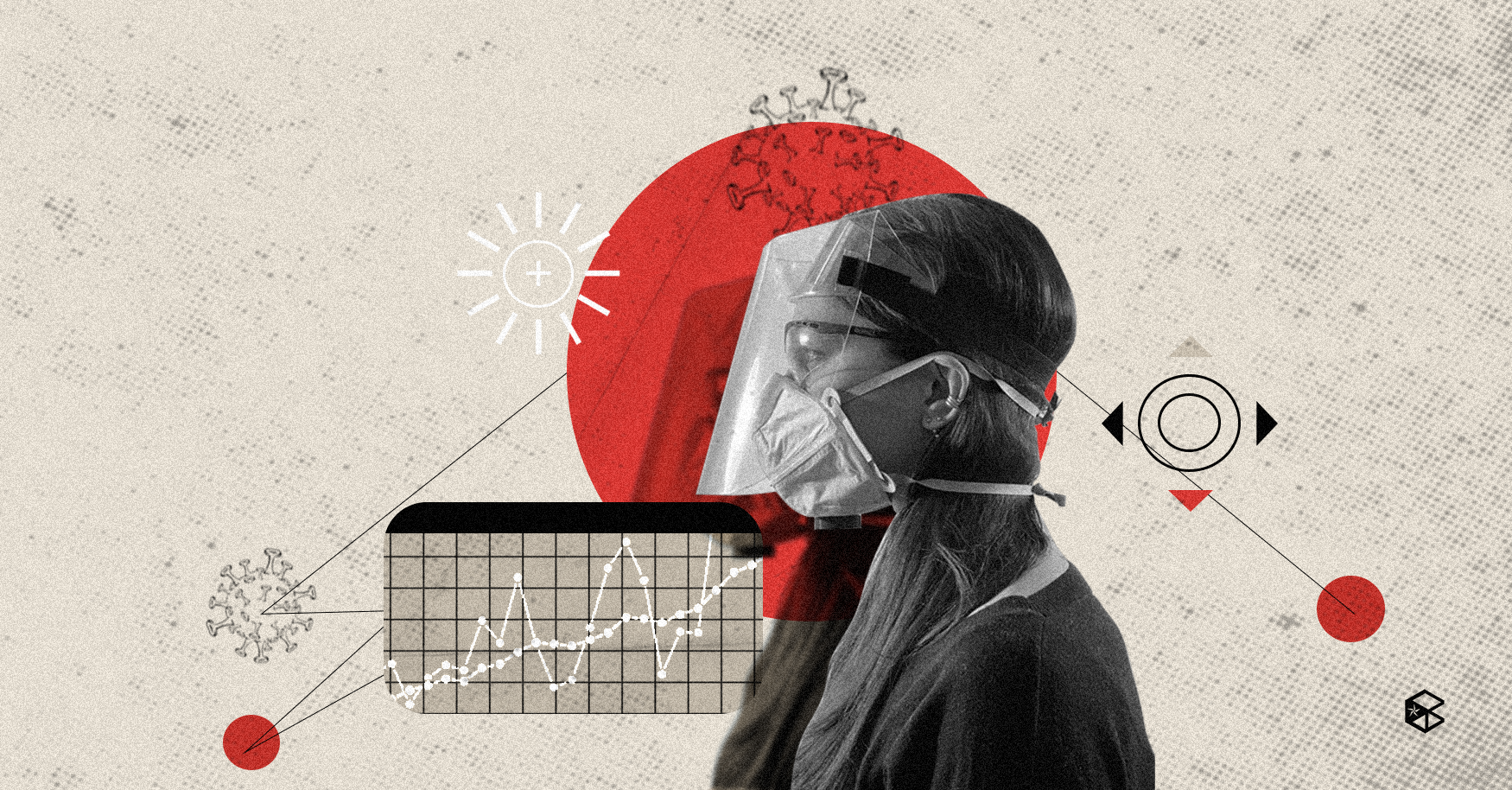Face shields, along with face masks, have been a part of every Filipino's fundamental protection against COVID-19 since early 2020. It has been required in all commercial enterprises and public transportation systems as it was believed to be an “added protection” against the virus. However, a leading American aerosol scientist revealed that infectious viruses such as SARS-CoV-2, which are transmitted through air, cannot be prevented by the use of plastic barriers and face shields.
'Outdated' COVID protocols
Throughout the pandemic, the Philippine government mandated that people wear face shields and use plastic barriers to prevent the transmission of the coronavirus from spreading. Despite this, the idea of needing face shields has been controversial from the beginning. As one scientist noted, it might potentially trap COVID-19 particles in the atmosphere.
Dr. Jose-Luis Jimenez, an aerosol expert and a professor of Chemistry at the University of Colorado-Boulder, slammed many governments, including the Philippines, for using outdated COVID-19 protocols. Jimenez argued that using plastic barriers and face shields to protect against airborne illness is harmful and should be discouraged.
“Face shields are outdated. At the beginning of the pandemic, we saw that when two people [talked], there were some projectiles, these droplets, were flying through the air, and then a face shield could intercept them,” Jimenez explained in an interview with ABS-CBN News Channel.
According to Jimenez, the government should purchase additional N95 masks to protect the country's healthcare workers and citizens with weakened immune systems.
Instead of plastic face shields, which Jimenez described as a “waste of money,” medical professionals should instead use laboratory goggles to prevent virus-infected air from reaching close to their eyes.
Jimenez claimed that he has spoken with government officials from several countries about using face shields, but they have not always listened, leading him to utilize Twitter to inform the general public.
"I've talked to government ministers from many countries…[but] the problem is that they often don't listen. That's why I have to resort to Twitter," Jimenez said.
Now what?
On Nov. 15, 2021, the Philippines lifted the mandatory use of face shields in regions classified as Alert Levels 1, 2, and 3. Local governments have the authority to maintain or lift it on Alert Level 4 while it stays in effect in hospitals, areas under granular lockdown, and other regions under the Alert Level 5.
According to experts, heating, ventilation, and air conditioning providers should use air filters to clean the air. They also suggested that UV lamps must be placed near air vents and away from people.
Improving ventilation is essential for lowering the risk of airborne transmission. At the same time, it is recommended that building owners and individuals use open windows or exhaust fans to suck the air out and guarantee that air is flowing in and out of the building. Electric fans are preferred over ceiling fans when it comes to pushing air out.
It is also recommended that the general public wear tight-fitting and high-quality masks such as N95, KN95, and KF94 masks.
#COVIDisAirborne
SARS-CoV-2 is mostly transmitted through exposure to respiratory fluids carrying the infectious virus. COVID-19-infected individuals discharge virus particles from their bodies through respiratory activities such as breathing, speaking, and sneezing. However, the quantity and size of respiratory particles produced by each of these exhalations may vary depending on the volume of speech, the number of deep breaths taken, and the duration of the activity.
The terms “aerosol” and “droplet” have been used interchangeably to explain how the novel coronavirus may spread. The two, on the other hand, are distinct from one another.
Aerosol is a broad term that refers to any solid or liquid particle that is small enough and light enough to float freely in the air and become suspended in it. For instance, both smoke and dust are dangerous. Certain viruses are capable of forming aerosols, which makes airborne transmission possible.
Infectious droplet transmission occurs when a virus-laden droplet contacts another's eyes, nose, or mouth. Droplets are big mucus or saliva particles that fall when discharged.
Stay informed about COVID-19
In this time of the pandemic, it is vital to be up to date on the most recent information regarding COVID-19 and that people should only rely on experts and reliable sources.
COVID-19 is far more than just a public health emergency. It necessitates a coordinated response from all levels of government and society. Every citizen and every political leader must match the determination and commitment of frontline health workers in order to put in place the measures necessary to put an end to the pandemic.


